BEST UNIVERSITY IN GERMANY 2024
Find the best universities in Germany in 2024 through Times Higher Education’s World University Rankings data
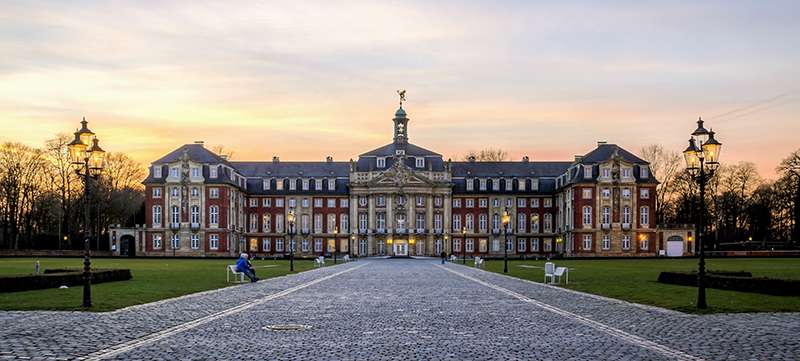
10.UNIVERSITY OF GOTTINGEN
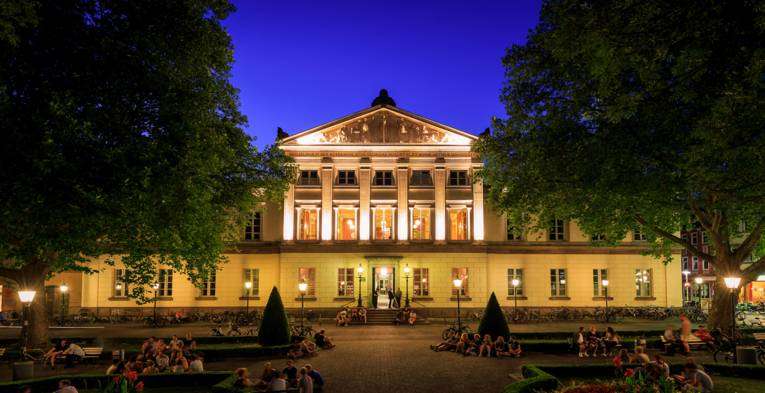
The University of Göttingen, located in Germany, is a prestigious research university known for its academic excellence and contributions to various fields. Established in 1737, it has a rich history and is one of the oldest universities in Germany. The university offers a wide range of programs across disciplines such as natural sciences, humanities, social sciences, and engineering. The University of Göttingen is particularly renowned for its strong emphasis on research and innovation. It has numerous research institutes, centers, and collaborations with industry partners, fostering a dynamic environment for cutting-edge research and academic advancement. Additionally, the university is known for its international outlook, welcoming students and researchers from around the world. It promotes cultural diversity, global collaboration, and exchange programs, enriching the academic experience for its students and contributing to a vibrant international community. Overall, the University of Göttingen stands as a beacon of academic excellence, research innovation, and global engagement in higher education.
9.UNIVERSITY OF BERLIN

The Free University of Berlin was founded in 1948, in the turmoil of post-war Germany, when students of the former Universität Unter den Linden, then located in the Soviet sector of the city, were facing persecution because of their views. With international support, the Free University was established, allowing scholars to pursue their teaching and learning without political interference. Truth, justice and freedom remain the university’s core values with these words imprinted on the university seal. In the 1960s, the university was the site of several student protests and demonstrations. In 1990, German reunification brought about changes in the management of the university, and, with it, came a newfound focus on research. Today, it is one of only eleven designated ‘German Universities of Excellence’. Set in the leafy suburb of Dahlem in southwest Berlin, the university is home to more than 32,000 students and offers over 150 degree programmes. It has 17 collaborative research centres, an academic staff of almost 5,000 and partnerships with universities the world over, as well as seven international liaison offices in Beijing, Brussels, Cairo, Moscow, New Delhi, New York, and Sao Paulo. The university also boasts five Nobel Prize winners among its staff and 17 winners of the Leibniz Prize. With women employed in 30 per cent of its professorships, the university is also at the forefront of German higher education institutions when it comes to gender representation. Over the years, the Free University of Berlin has hosted many influential figures, including President John F. Kennedy who chose it as the location to deliver his ‘Ich bin ein Berliner’ speech in 1963.
8.University of Tübingen
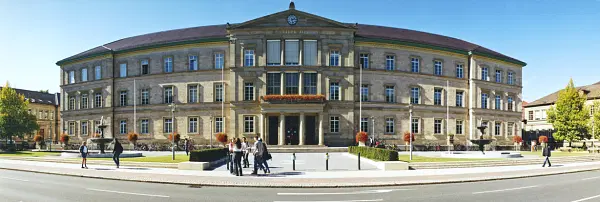
The University of Tübingen, located in Germany, is a renowned research university with a long history of academic excellence and innovation. Founded in 1477, it is one of the oldest universities in Germany and Europe. The university offers a diverse range of programs across various fields, including humanities, social sciences, natural sciences, engineering, and medicine. One of the key strengths of the University of Tübingen is its strong emphasis on research. It is home to numerous research institutes, centers, and collaborative projects that contribute to cutting-edge discoveries and advancements in different disciplines. The university also prides itself on its international outlook and vibrant academic community. It attracts students and scholars from around the world, fostering cultural diversity, global collaboration, and exchange programs. Additionally, the University of Tübingen is known for its picturesque campus, historical buildings, and rich cultural heritage. It provides a conducive environment for academic learning, research endeavors, and personal growth. Overall, the University of Tübingen continues to uphold its reputation as a leading institution in higher education, research, and international collaboration.
7.Charité - Universitätsmedizin Berlin
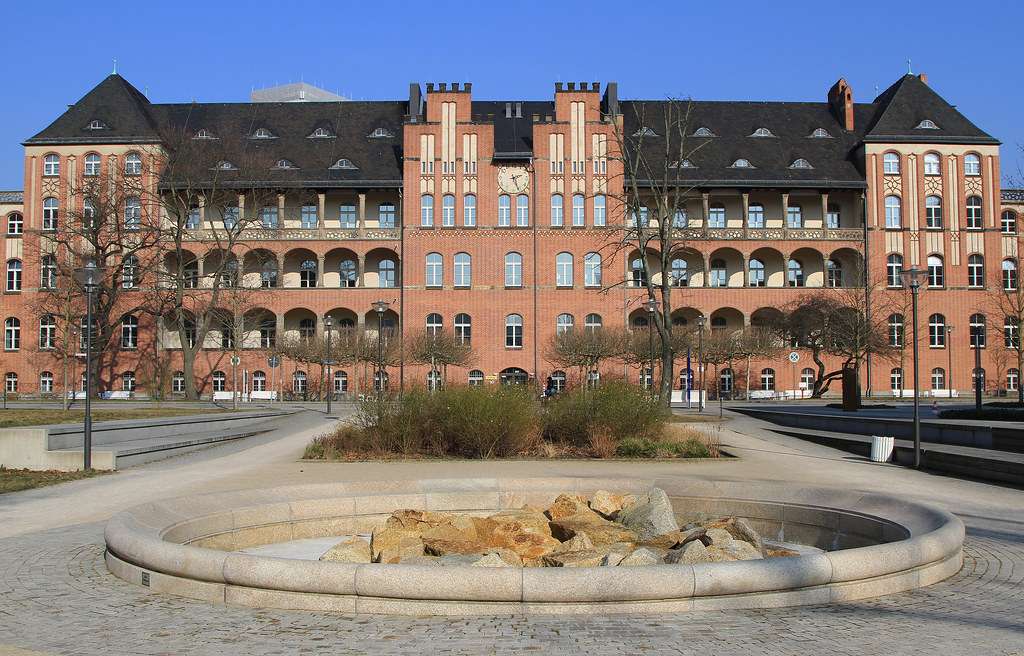
Charité - Universitätsmedizin Berlin is one of the largest university hospitals in Europe. Its motto is: ‘Forschen, Lehren, Heilen, Helfen’, which translates as ‘Research, Teaching, Healing, Helping.’ Dating back to 1710, the hospital was originally built in response to a plague epidemic in Eastern Prussia. By 1727 it had become a military hospital and educational training centre, and renamed Charité. Following its destruction during World War II, the building had to be rebuilt, and between 1946-1989, it served as a medical institute of the German Democratic Republic. By 2003, as a result of merges with other medical institutes in Germany, the Charité - Universitätsmedizin Berlin became one of the main medical centres in Europe. More than half of German Nobel prize-winners in medicine and physiology originated from the Charité, including physician and microbiologist Robert Koch, and the immunologist Paul Ehrlich. In 2010, the university celebrated its 300-year anniversary and today, it is wholly-owned by the Federal State of Berlin, has a turnover of €1.5 billion per annum and is one of the largest employers in the city, home to 3,700 doctors. Charité has four campuses across Berlin: Campus Benjamin Franklin, Campus Charité Mitte, Campus Virchow-Klinikum and Campus Berlin Buch, which between them take up 540,000 square meters of land. It has a student body of 7,000 – 1,200 of whom are from overseas – and is made up of approximately 100 departments and institutes, which are organised into 17 CharitéCentres. Students of Charité are encouraged to join student councils and committees in order to contribute towards the development of their teaching and learning. Since 2011, Charité has been bestowing grants to selected students.
6.University of Bonn
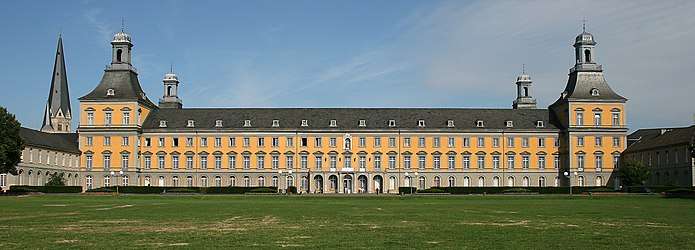
The University of Bonn, officially named The Rhenish Friedrich Wilhelm University of Bonn after the Prussian King Friedrich Wilhelm, was founded in 1818. Established at the time of the Age of Enlightenment, the university, built on critical thinking and liberal values, expanded rapidly with many eminent scholars attending from across the whole of Germany. By the 1930s, the Nazis had forced many Jewish intellectuals and dissidents to leave, and the wartime bombardment of Bonn that followed in 1944 led to the university’s destruction. In the post-war period, the university was rebuilt, students returned, and its academics set about restoring the institution to its former glory. Today, the University of Bonn is among the world’s leading research universities. It is home to more than 35,000 students and 4,500 academic staff, with strategic partnerships in place with 70 universities across the globe. Its strong international spirit is evident in its cohort of 4,000 international students, which, at about 12.5% of the student populace, is higher than the national average. Each year, it confers approximately 800 PhDs. The university cites subject strengths in Mathematics, Physics, Astronomy, Economics, Biosciences, and Philosophy. Boasting two Nobel Prize winners: Wolfgang Paul in 1989 for Physics, and Reinhard Selten in 1994 for Economics, it also has associations with eight Leibniz Prize winners. Its most notable alumni include Karl Marx, Friedrich Nietzsche, and the composer Robert Schumann. Offering over 90 degree programs, the university is located across 371 buildings in the city of Bonn. Situated on the banks of the River Rhine, Bonn is a historic city and the birthplace of Ludwig van Beethoven. In addition to its academic achievements, the University of Bonn is actively involved in various research projects, collaborations, and initiatives aimed at addressing global challenges and advancing knowledge across different disciplines. Its commitment to excellence, innovation, and international cooperation continues to drive its success as a leading institution in higher
5.RWTH Aachen University
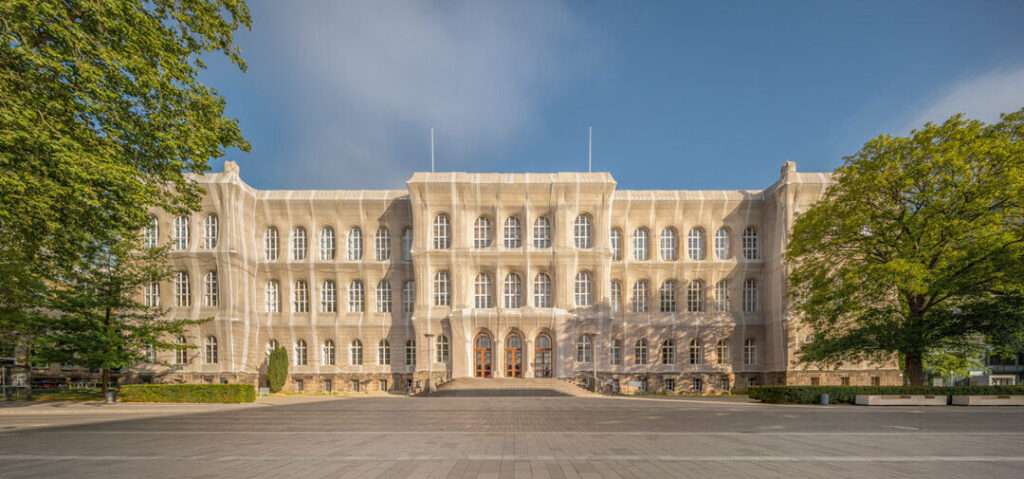
RWTH Aachen University, founded in 1870 with a strong focus on engineering and the local mining industry, has since grown into the largest technical university in Germany. Its comprehensive academic offerings span across various fields, including engineering, life sciences and medicine, arts and humanities, natural sciences and social sciences, and management and architecture. Apart from its academic prowess, RWTH Aachen is renowned for its groundbreaking innovations. It is the birthplace of the world's first wind tunnel and particle accelerator, showcasing its commitment to cutting-edge research and technology development. Additionally, the university has been instrumental in major advancements such as the creation of a pioneering all-metal aircraft and a diesel soot filter, highlighting its contribution to industry and society. RWTH Aachen's strong ties to industries have led to the development of a vibrant innovation ecosystem, often referred to as the European equivalent of Silicon Valley. This ecosystem fosters collaboration between academia, research institutions, and businesses, driving entrepreneurship, technology transfer, and economic growth in the region and beyond. Furthermore, RWTH Aachen University is deeply committed to internationalization, with a diverse student body and extensive collaborations with universities and organizations worldwide. Its strategic partnerships and global initiatives enhance academic exchange, research collaboration, and cultural understanding, reinforcing its position as a leading institution in higher education, research, and innovation.
4.Humboldt University of Berlin
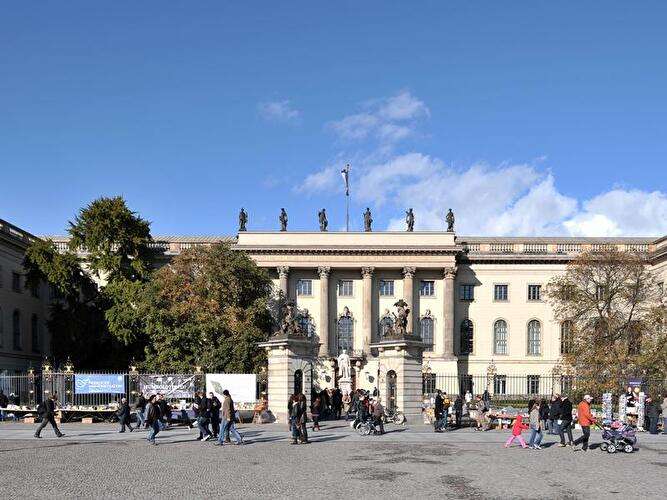
Humboldt University of Berlin, situated in the vibrant capital city of Germany, Berlin, is a highly sought-after destination for international students seeking quality education and cultural immersion. Comprising nine faculties, Humboldt University boasts a diverse range of academic disciplines, including its renowned medical faculty, which it shares in collaboration with the Free University of Berlin. The university's main building is prominently located on Unter den Linden boulevard, surrounded by a rich tapestry of historic buildings, museums, and art galleries, offering students a stimulating environment for learning and exploration. Notable for its distinguished alumni and faculty, Humboldt University has been home to some of the most influential figures in various fields. This includes renowned physicists Albert Einstein, Max Planck, and Erwin Schrödinger, celebrated collectors of folk tales Jakob and Wilhelm Grimm, and influential philosopher Karl Marx, among many others. Beyond its academic achievements, Humboldt University actively promotes cultural exchange and global collaboration through its international programs, research initiatives, and partnerships with institutions worldwide. Its commitment to academic excellence, innovation, and inclusivity continues to attract students and scholars from diverse backgrounds, making it a hub of intellectual discourse and academic achievement in the heart of Berlin.
3. Universität Heidelberg
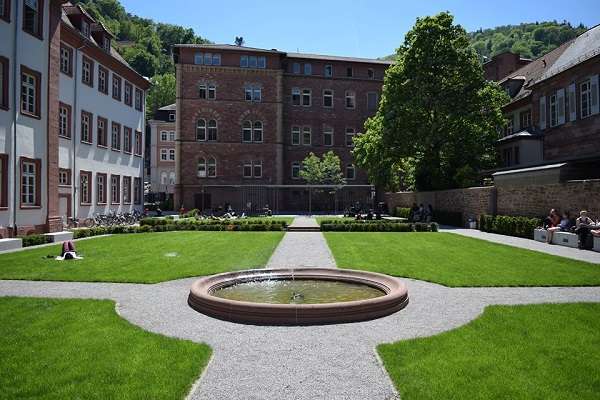
Founded in 1386, Universität Heidelberg stands as the oldest university in Germany, steeped in centuries of academic excellence and intellectual heritage. With a vibrant and diverse student body, approximately 20 percent of students at Heidelberg University hail from 130 different countries, fostering a rich multicultural environment. Moreover, the university's international appeal extends to its doctoral programs, where over a third of doctoral candidates come from various parts of the world. Universität Heidelberg offers a comprehensive range of undergraduate and postgraduate degrees across 160 study programs, covering a wide array of disciplines. The university has a strong reputation for pioneering research and has played a pivotal role in founding sub-disciplines such as psychiatric genetics, modern sociology, and environmental physics. Notably, Universität Heidelberg boasts an impressive legacy in terms of Nobel laureates, with 27 laureates associated with the university, nine of whom were awarded the prize during their tenure at Heidelberg. The university's illustrious alumni and affiliates include influential figures in politics, philosophy, and science. Max Weber, known as the founder of modern sociology, and philosopher Hannah Arendt are among the notable personalities associated with Universität Heidelberg. Heidelberg's rich cultural significance is evident in its association with German Romanticism, with the Old Town and castle serving as iconic landmarks and popular tourist attractions in Germany. The picturesque setting adds to the university's allure, providing students with a unique and inspiring learning environment. Overall, Universität Heidelberg continues to uphold its legacy of academic distinction, research innovation, and cultural heritage, making it a leading institution in Germany and a hub for global intellectual exchange.
2.LMU Munich
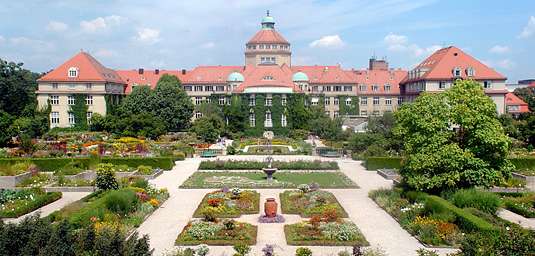
Founded in 1472, LMU Munich stands as one of Germany's oldest and most prestigious universities, boasting a rich history of academic excellence and innovation. Affiliated with an impressive lineup of 42 Nobel laureates, including distinguished scientists like Otto Hahn, Max Planck, and Werner Heisenberg, LMU Munich has been at the forefront of groundbreaking research and discoveries. With the second-largest student population in Germany, the Ludwig Maximilian University of Munich attracts a significant number of international students, accounting for about 13 percent of its total student body. This international diversity adds to the university's vibrant academic community and global outlook. Since the late 18th century, LMU Munich has maintained a strong focus on natural sciences, leading to numerous world-leading research initiatives and innovations across various fields. The university's commitment to advancing knowledge and addressing global challenges has earned it recognition and support through initiatives like the German Universities Excellence Initiative, launched in 2005. This initiative has provided substantial funding to LMU Munich and other leading universities in Germany, enabling them to enhance their research infrastructure, academic programs, and international collaborations. LMU Munich's dedication to excellence, research prowess, and internationalization continues to position it as a top-tier institution in higher education, contributing significantly to scientific advancements, academic scholarship, and global intellectual exchange.
1.Technical University of Munich

The Technical University of Munich (TUM) stands out as the only state university in Germany dedicated solely to science and technology. Since its establishment in the 19th century, TUM has evolved into a leading institution with a strong focus on engineering, natural sciences, social sciences, agriculture, brewing and food technology, and medicine. One of TUM's notable achievements is its affiliation with 17 Nobel laureates in physics, chemistry, and medicine since 1927. This demonstrates the university's commitment to groundbreaking research and academic excellence in various fields. Over the years, TUM has expanded its academic offerings to encompass a wide range of specializations within engineering and information technology, offered across three departments. This diverse curriculum reflects the university's emphasis on interdisciplinary learning and cutting-edge research. TUM's overarching philosophy of "the entrepreneurial university" underscores its dedication to fostering innovation, collaboration, and real-world impact. The university encourages an entrepreneurial mindset among its students and faculty, promoting initiatives such as technology transfer, startup incubation, and industry partnerships. With 15 departments spread across three campuses in and around Munich, TUM provides a dynamic learning environment equipped with state-of-the-art facilities and resources. Its strategic location in one of Europe's leading innovation hubs enhances opportunities for collaboration, internships, and career advancement for students and researchers alike. Overall, the Technical University of Munich continues to uphold its reputation as a trailblazer in science, technology, and entrepreneurship, contributing significantly to global advancements and shaping the future of education and innovation.